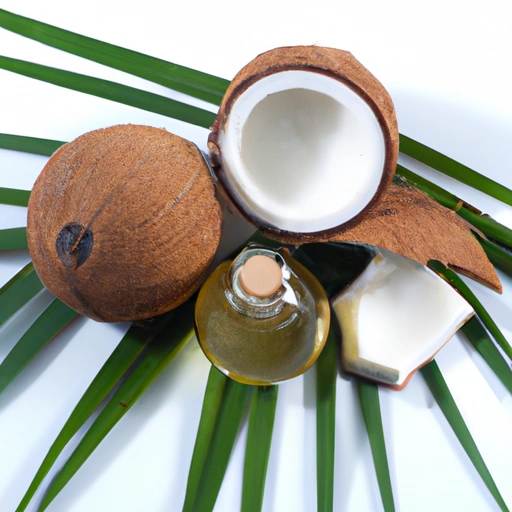Coconut Oil
Description

Coconut oil is a highly versatile and nutritious ingredient extracted from the meat of mature coconuts (Cocos nucifera). It has gained popularity worldwide for its wide range of uses in cooking, baking, and even personal care. The oil is known for its characteristic aroma and flavor which can enhance the taste of various dishes. It's available in several forms such as refined, unrefined (virgin), and cold-pressed, each imparting different qualities to recipes.
Common uses
Coconut oil is commonly used for frying and sautéing due to its high smoke point, especially in Asian and Caribbean cuisines. It is also a popular ingredient in baked goods and sweets, providing a rich texture and unique flavor. In non-culinary applications, it is often found in natural beauty products and homemade remedies.
Nutritional value
Calories
Coconut oil is energy-dense, containing about 120 calories per tablespoon (14 grams or 0.5 ounces).
Protein
It contains negligible amounts of protein.
Fat
Coconut oil is composed predominantly of saturated fats, with 1 tablespoon providing roughly 14 grams (0.5 ounces) of fat.
Carbohydrates
Coconut oil is carbohydrate-free.
Vitamins
While not a significant source of vitamins, it does contain small amounts of vitamin E and vitamin K.
Minerals
It has trace amounts of minerals such as iron and potassium.
Health benefits
Some studies suggest that coconut oil may have various health benefits, including promoting heart health, supporting weight loss, and providing antimicrobial effects due to its lauric acid content. However, these claims require more research for conclusive evidence.
Potential risks
Due to its high saturated fat content, some health organizations advise moderation in coconut oil consumption as it may contribute to increased cardiovascular risk factors if consumed in large amounts.
Common recipes
Coconut oil is widely used in making curries, stir-fries, and baked goods like cookies and cakes. It's also a key ingredient in vegan recipes to substitute dairy products.
Cooking methods
The oil's high smoke point makes it suitable for frying, roasting, and grilling. It can also be used in raw food recipes such as smoothies and energy balls.
Pairing with other ingredients
Coconut oil pairs well with tropical fruits, chocolate, and spices like curry, cinnamon, and ginger. It also complements savory dishes with chicken, shrimp, or tofu.
Summary
Coconut oil is an edible oil with a rich history, used extensively in tropical cuisines and gaining popularity worldwide for its flavor and versatility. It offers potential health benefits but should be consumed in moderation due to its saturated fat content. With applications ranging from cooking and baking to natural skincare, coconut oil is a valuable ingredient for many culinary and home remedy preparations.